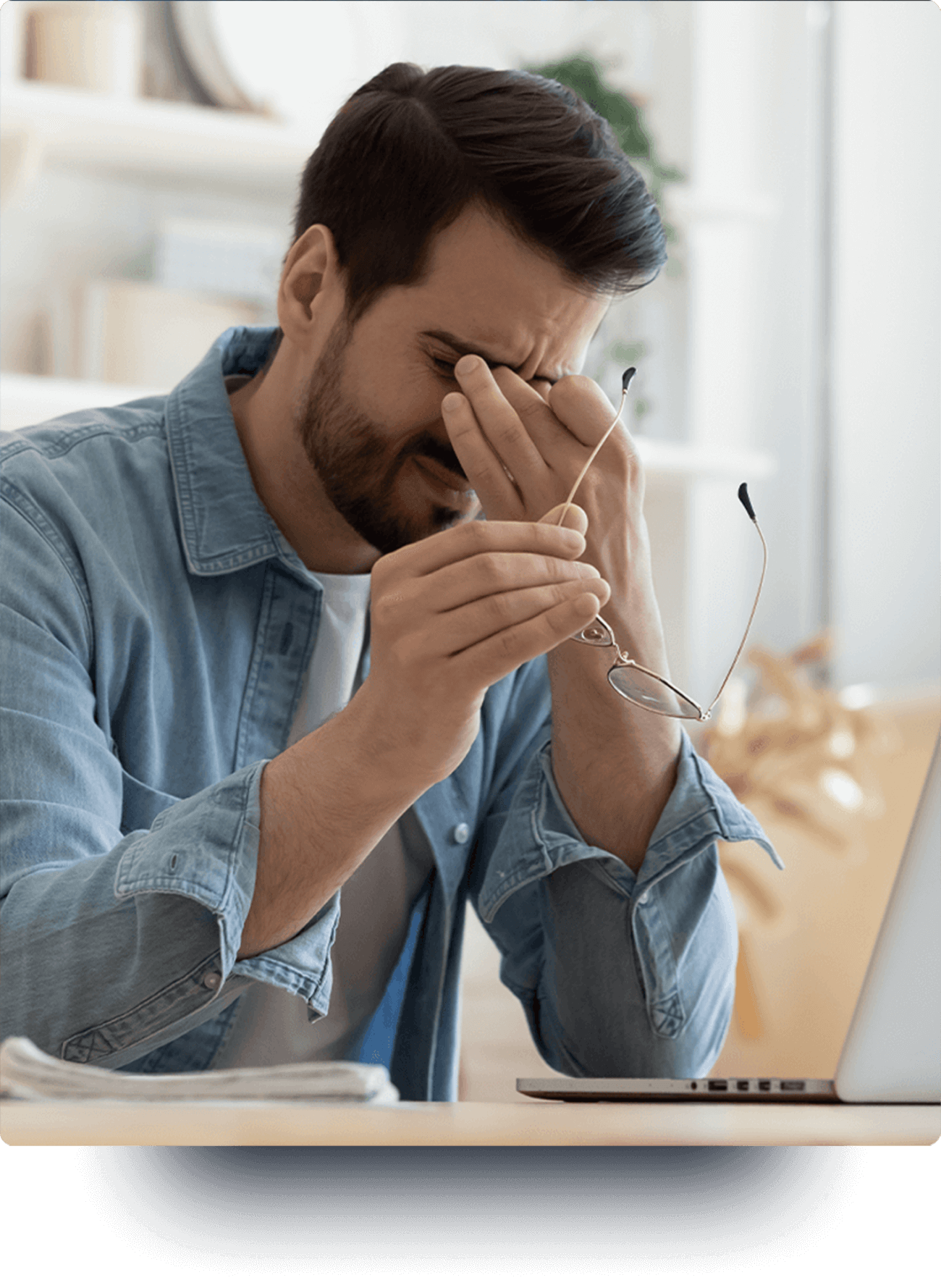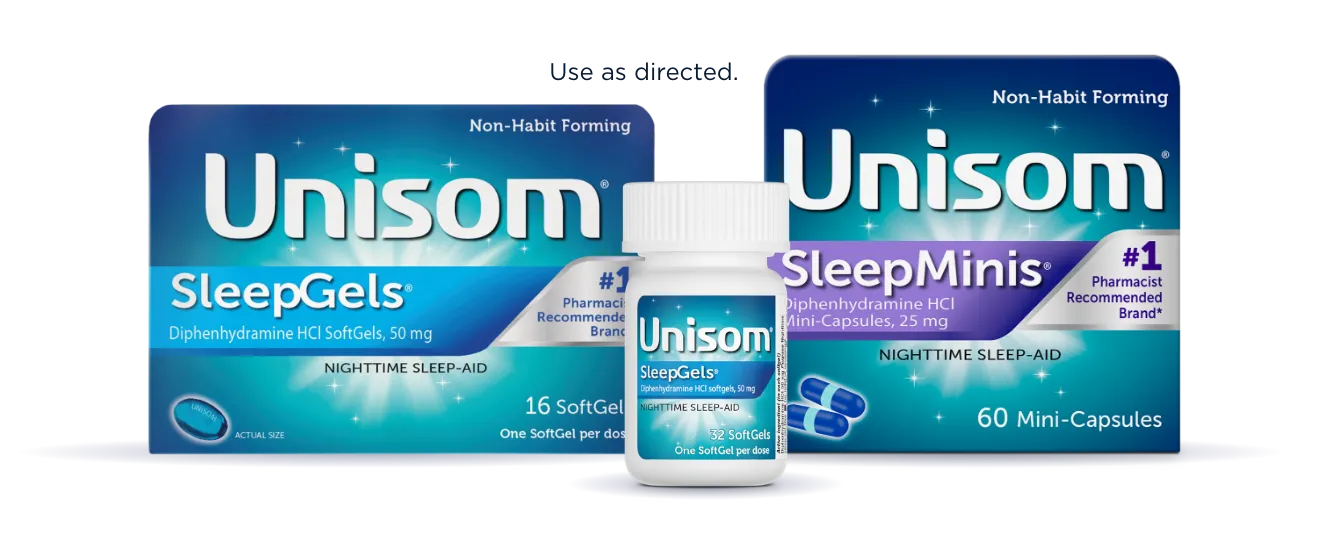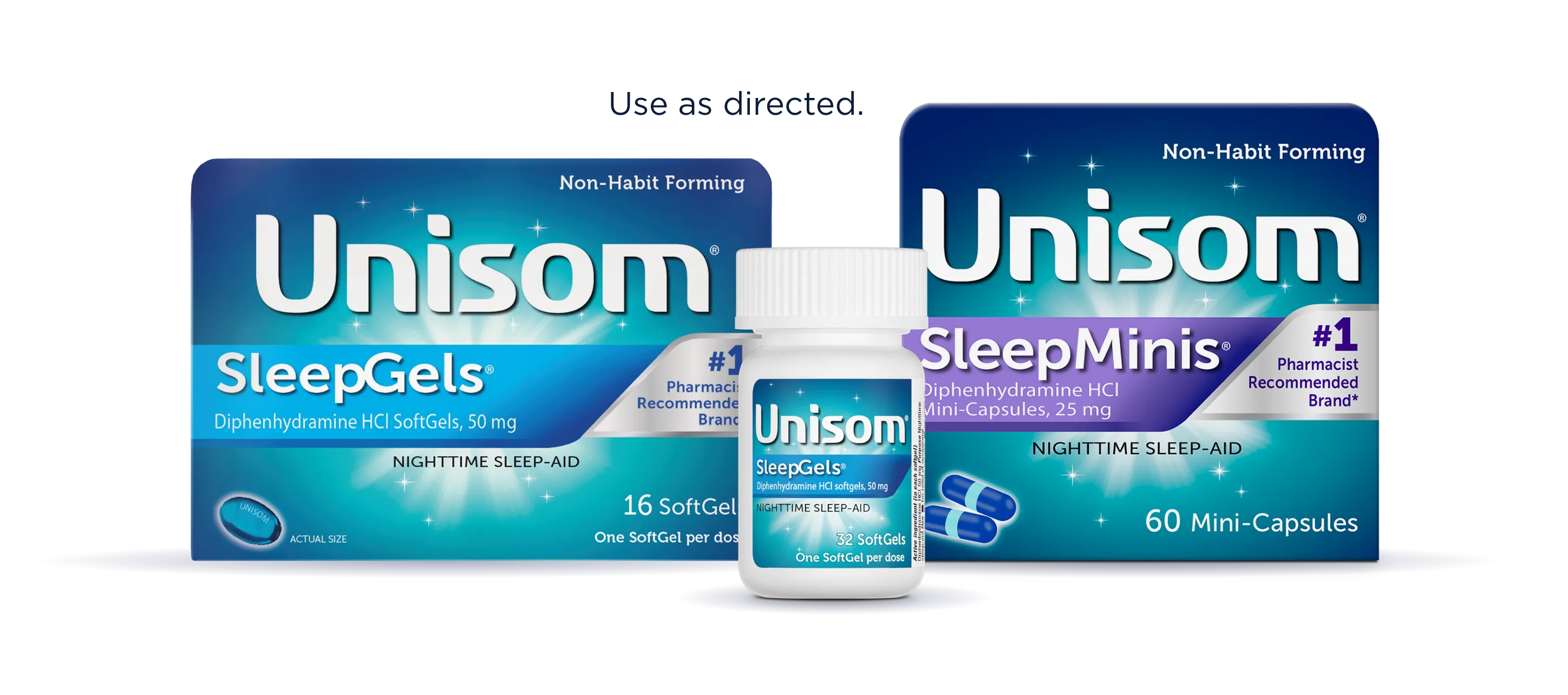You can experience stress in many different ways. Sensations like headaches, stomachaches, tense muscles, increased heart rate, or increased perspiration. This can make it difficult to get a good night’s sleep.1
Stress-related sleeplessness can even become a self-perpetuating cycle. Lack of sleep can make life at home and work more difficult, which just creates more stress. Which just makes it that much harder to sleep.2
Sleep is critically important to your overall well-being. The sooner you can get some good deep sleep — and stay asleep — the better.
The easiest step to good sleep is a positive outlook
A scientific study demonstrated the link between stress and the quality of your sleep. It’s clear: the more you worry, the worse it gets. And it’s common for people who struggle during the day to carry those negative thoughts and emotions to bed.³
Thinking in more positive, optimistic ways can have an equally profound effect. Of course, that may be more easily said than done. Many people face challenges that make it hard to stay positive. But there are simple steps you can take to break the cycle of negative thinking.

Start by raising your awareness. Notice that you’re holding negative thoughts and make a conscious choice to think differently.3
One trick is to review your day, challenges and all. It may be helpful to make notes. Then find the positive, optimistic, hopeful view. See the solutions. Look for opportunities. Recognize the wins — give yourself credit for good work and decisions. Remind yourself that none of it follows you to bed. If stress or anxiety persist, consult a medical professional.
Lessen work-related stress
Many people feel stressed at — or about — work. It’s reported that American workers have trouble falling asleep at least 5 days a month.2
High work stress contributes to your overall stress levels, and can keep you from falling asleep at night.3 But no matter how stressful your job, there are ways to improve the sleep experience by reducing your stress.2
Find ways to make your workday less stressful2
- Come up with ideas to fix your schedule or better managing your workload, and present them to your supervisor
- Ask for the support and resources that will make your job easier
- Make better connections with co-workers and find time to share your experiences, thoughts, and feelings
Develop new ways to cope with stress at work2
- Take breaks during the day for active relaxation, meditation, or calming breath exercises
- Get up during the day to exercise or just move around
- Notice how you feel and react to stressful situations and take action before the stress becomes unhealthy
Be cautious about sleep apps and fitness trackers
Assigning metrics to sleep duration and quality can make anxiety about sleep even worse.2 In clinics, some patients using sleep trackers became overly focused on achieving an optimal score.3
Practice good sleep hygiene with a positive attitude and don't rely solely on sleep trackers.3
Set up your bedroom for the best sleep
Your bedroom is sleep central. It should be as relaxing and calming as possible.
Here are some ideas for turning it into your own cozy comfort cave:⁴
- Choose the right size mattress and the best quality you can afford — a queen-size is usually good for adults and couples
- Choose the best-quality bedding you can afford — most people prefer soft, comfortable cotton
- Limit the number of pillows to minimize clutter
- Try not to have your head directly under a window
- Maintain a sense of openness and circulation throughout the room, which includes avoiding clutter, having your bed on an elevated frame, not storing stuff under the bed, and keeping the room free of too much furniture or accessories
- Keep work-related materials — including laptops — out of the bedroom
- Avoid having exercise equipment in the bedroom
- Keep electronics out of the bedroom; if you must have a TV, store it in a media cabinet or cover it with fabric or a blanket when not in use
- Keep your bedroom clean and organized
- Choose soothing, relaxing wall colors like earth tones and pastels
- Hang gentle, pleasing wall art like florals or pastoral landscapes
- Use light dimmers
- Keep your room cool, between 65–67°F
- Use shades or curtains which can block ambient light
Rest assured
Sometimes you just want a little help sleeping. While Unisom® won't help reduce stress, you can count on us to help you get a better night's sleep. Unisom® is the #1 doctor-recommended OTC sleep-aid brand, with a range of options to help you fall asleep and wake up feeling refreshed.
Unisom® SleepGels® contain the histamine blocker diphenhydramine HCl. Blocking histamine production can help you fall asleep faster and stay asleep.
Unisom® SleepTabs® contain doxylamine succinate, which is a clinical-strength histamine blocker that works in a similar fashion to diphenhydramine. Unisom® SleepTabs® can help you fall asleep 33% faster and get a full night's sleep.
Find the Unisom® product that’s right for you.
This article is not a substitute for medical advice. If you are suffering from ongoing stress or anxiety, seek the help of a medical professional.
Professional References
1. Cheryl Tierney, MD; Kelly Mahler, OTR/L; Brittany Friedson. Trouble Sleeping? Listen to What Your Body Is Telling You, American Sleep Association (sleepassociation.org)
2. American Sleep Association, Editors. The impact of job stress on sleep patterns, American Sleep Association (sleepassociation.org)
3. American Academy of Sleep Medicine, Editors. Breaking the cycle of stress, negative thoughts, and sleeplessness, American Sleep Association (sleepeducation.org)
4. Better Sleep Council, Editors. How to Get Quality Sleep During Stressful Times, The Better Sleep Council (bettersleep.org), April 2020
Related articles
†These statements have not been evaluated by the Food and Drug Administration. This product is not intended to diagnose, treat, cure or prevent any disease.





